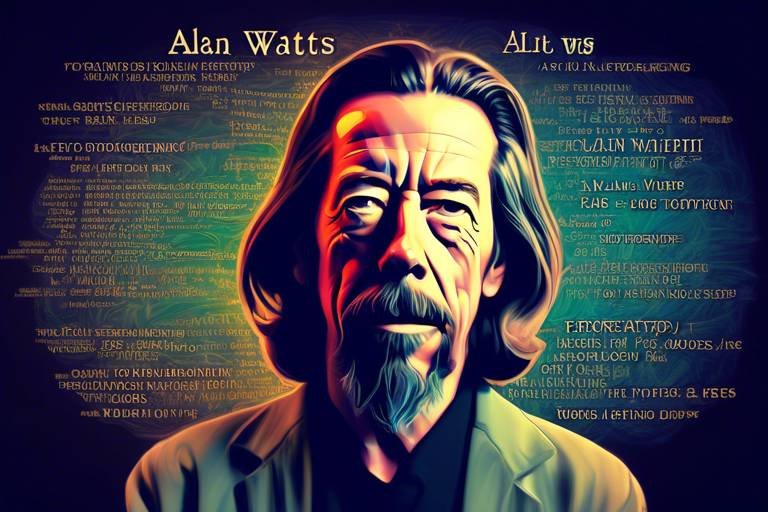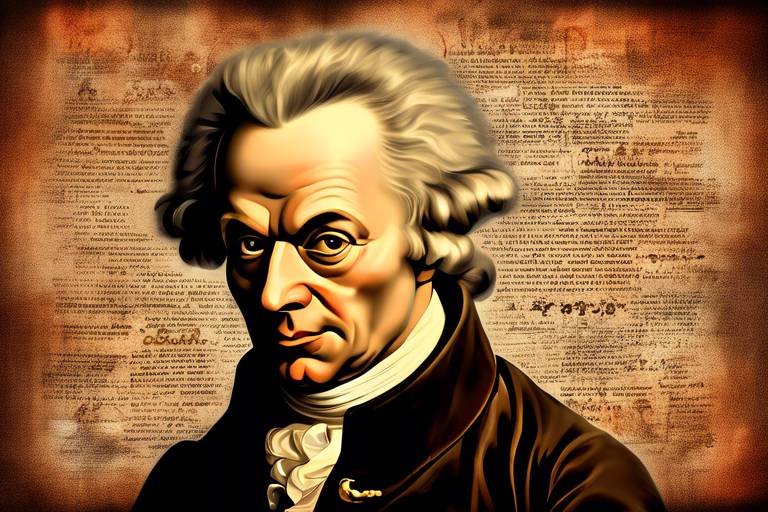Envisaging the Fourth Dimension - The Philosophy of P.D. Ouspensky
In the realm of philosophical inquiry, few figures stand as tall as P.D. Ouspensky. His exploration of the fourth dimension not only challenges our conventional understanding of reality but also invites us to reconsider the very fabric of existence. Ouspensky, a Russian philosopher and mathematician, delves deep into the mysteries of time and space, ultimately crafting a narrative that reshapes our perception of both. Imagine for a moment that our reality is much like a flat piece of paper, with only two dimensions—length and width. Now, envision a third dimension being added, introducing height. This simple analogy sets the stage for understanding Ouspensky's revolutionary ideas about the fourth dimension, where time intertwines with space in ways that are both profound and perplexing.
Ouspensky posits that our everyday experiences are confined to a three-dimensional perspective, which limits our comprehension of the universe. He argues that the fourth dimension is not merely a theoretical construct; it is a crucial aspect of our reality that we often overlook. By expanding our consciousness to include this higher dimension, we can unlock new ways of perceiving and interacting with the world around us. This shift in perspective can lead to a deeper understanding of our place in the cosmos and the interconnectedness of all things. Ouspensky's work serves as a bridge between the tangible and the abstract, inviting us to explore the boundaries of human perception and the potential that lies beyond.
Through his writings, particularly in the influential book "A New Model of the Universe", Ouspensky articulates a vision of reality that is both intricate and enlightening. He navigates the complexities of existence, weaving together threads of philosophy, science, and spirituality. The implications of his ideas extend far beyond academic discourse; they resonate with anyone seeking to understand the deeper meanings of life. As we embark on this journey through Ouspensky's philosophy, we will uncover the ways in which his insights into the fourth dimension can transform our understanding of consciousness, existence, and the very nature of reality itself.
Understanding the fourth dimension involves delving into Ouspensky's interpretations of time and space, and how these concepts reshape our understanding of reality beyond the three-dimensional world. Ouspensky invites us to consider time not just as a linear progression of moments but as a rich tapestry where past, present, and future coexist. He challenges the notion that we are merely passive observers of time, suggesting instead that we have the potential to experience it in a more dynamic and interconnected manner.
To illustrate this, think of time as a river flowing through a landscape. In our typical experience, we are like boats drifting downstream, moving from one moment to the next. However, Ouspensky encourages us to imagine stepping out of the boat and observing the river from above. From this vantage point, we can see how all moments are interconnected, how events influence one another, and how our perception of time can be expanded. This perspective opens the door to a deeper understanding of existence, inviting us to engage with the universe in a more meaningful way.
Ouspensky's ideas have significantly impacted contemporary philosophy and science, prompting discussions on the nature of existence, consciousness, and the limitations of human perception in understanding higher dimensions. His work resonates with thinkers across various fields, from psychology to physics, as it challenges the boundaries of traditional thought. In an age where science and spirituality often seem at odds, Ouspensky's philosophy provides a unique framework for reconciling these two realms.
Time is a central theme in Ouspensky's work, where he proposes that our perception of time is linear, yet the fourth dimension offers a more complex understanding of temporal existence. By examining the nature of time, Ouspensky reveals how our limited viewpoint can distort our understanding of reality. He argues that our experiences are shaped not only by the events themselves but also by our perceptions of those events.
Exploring the differences between linear and non-linear time reveals how Ouspensky challenges conventional views. He suggests that time can be experienced as a more fluid and interconnected phenomenon. In a linear model, events unfold in a strict sequence, whereas in a non-linear model, moments can overlap and influence one another in unexpected ways. This perspective encourages us to rethink our relationship with time and how it shapes our experiences.
The implications of Ouspensky's views on time extend to human experience, influencing how we perceive events, memories, and the unfolding of our lives in relation to a broader temporal framework. By embracing the concept of non-linear time, we can cultivate a deeper awareness of the present moment and recognize the interconnectedness of our past, present, and future. This shift in perspective not only enhances our understanding of reality but also empowers us to live more consciously.
Ouspensky's exploration of higher dimensions invites readers to consider realities beyond immediate perception, encouraging an understanding of existence that transcends traditional three-dimensional boundaries. By contemplating these higher dimensions, we can expand our consciousness and unlock new avenues for self-discovery and growth.
Ouspensky's philosophy is closely linked to the teachings of George Gurdjieff, emphasizing the importance of self-awareness and the pursuit of higher consciousness in understanding the fourth dimension. Gurdjieff's teachings complement Ouspensky's ideas, providing practical tools for personal development and awakening.
The journey of self-development is crucial in Ouspensky's philosophy, as he advocates for conscious effort in expanding one's awareness to grasp the complexities of higher dimensions. This journey requires introspection, mindfulness, and a willingness to challenge preconceived notions about reality.
Applying Ouspensky's philosophical concepts in daily life encourages individuals to seek deeper understanding and awareness, fostering personal growth and a more profound connection to the universe. By integrating these ideas into our routines, we can cultivate a sense of purpose and navigate life with greater clarity.
- What is the fourth dimension according to Ouspensky? Ouspensky describes the fourth dimension as a complex interplay of time and space, challenging our conventional understanding of reality.
- How does Ouspensky's philosophy relate to modern science? His ideas have influenced contemporary discussions in philosophy and science, particularly regarding the nature of consciousness and existence.
- Can Ouspensky's concepts be applied to everyday life? Yes, his teachings encourage self-awareness and personal growth, making them applicable to various aspects of life.
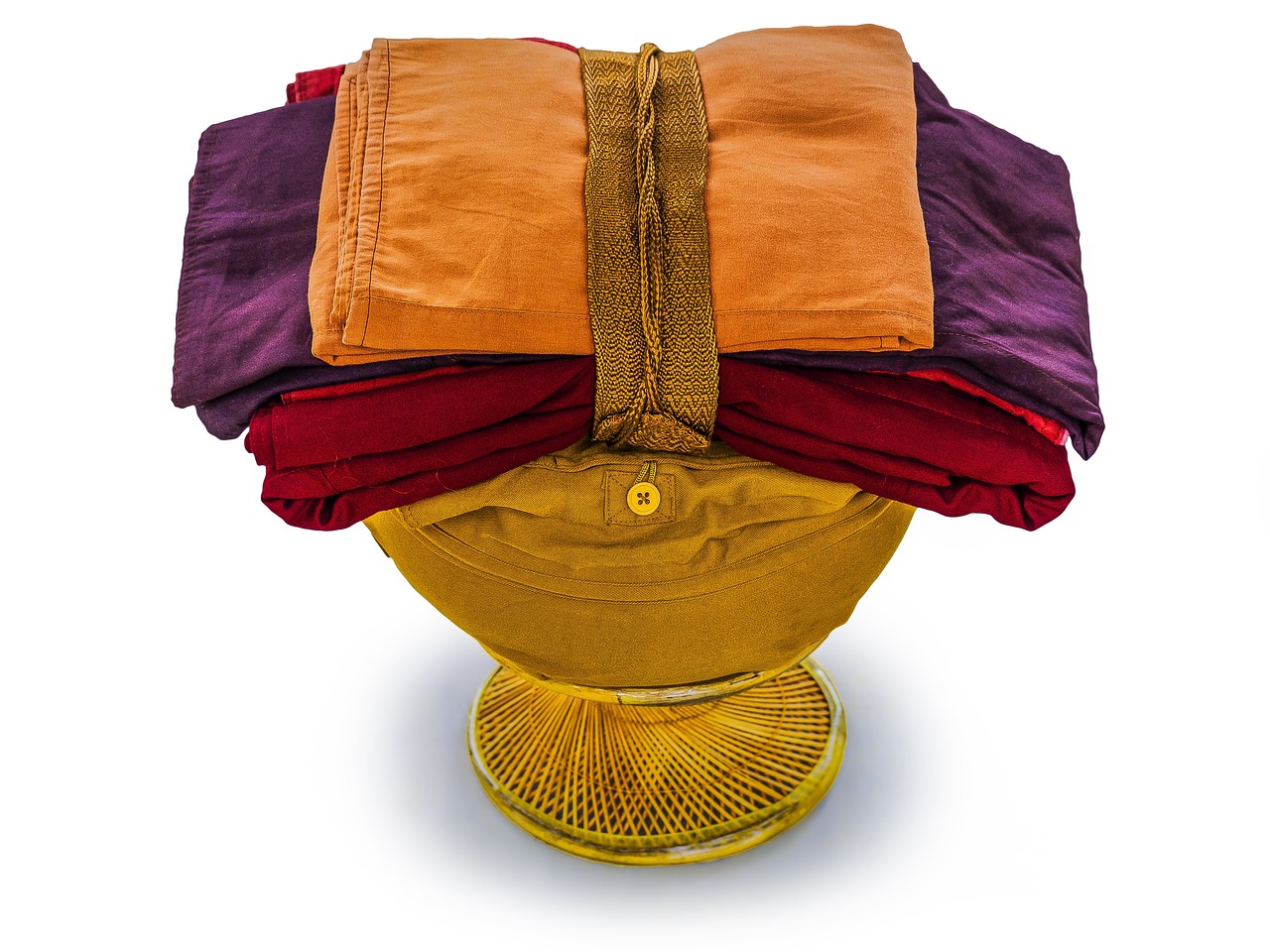
The Concept of the Fourth Dimension
Understanding the fourth dimension is like trying to grasp a concept that dances just out of reach, teasing our imagination and challenging our perceptions. P.D. Ouspensky, a profound thinker and philosopher, delved deep into this enigmatic realm, suggesting that our conventional understanding of reality is limited to just three dimensions: length, width, and height. But what if there’s more? What if time, as we know it, is merely a slice of a much larger, intricate tapestry? Ouspensky's exploration of the fourth dimension elevates our comprehension of time and space, reshaping the very fabric of our reality.
To illustrate Ouspensky's ideas, imagine standing in a room filled with countless doors, each representing a different dimension. In the three-dimensional world, you can only open one door at a time, experiencing one reality after another. However, the fourth dimension allows you to see all the doors simultaneously, granting you access to a broader spectrum of experiences and realities. This perspective invites us to reconsider our understanding of existence, suggesting that what we perceive as linear and sequential is merely a fraction of a much richer experience.
Ouspensky's interpretation of the fourth dimension is not just a theoretical exercise; it has profound implications for how we perceive our lives. For instance, consider how we often view our past, present, and future as distinct entities. In a four-dimensional framework, these moments intertwine, creating a more complex and interconnected reality. This understanding can lead to a transformative shift in our consciousness, where we begin to see ourselves as part of a larger continuum rather than isolated beings moving through time.
Furthermore, Ouspensky posits that this expanded perception is not merely an abstract concept; it has practical applications in our daily lives. By embracing the idea of the fourth dimension, we can cultivate a deeper awareness of our thoughts, actions, and their consequences. This awareness can lead to a more intentional way of living, encouraging us to break free from the constraints of linear thinking and explore the interconnectedness of all things.
In summary, the concept of the fourth dimension as articulated by Ouspensky invites us to challenge our preconceived notions of reality. It encourages us to step beyond the limitations of our three-dimensional existence and embrace a more holistic view of the universe. As we navigate through life, this perspective can enrich our experiences and deepen our understanding of consciousness itself.

Ouspensky's Influence on Modern Thought
P.D. Ouspensky, a name that resonates through the corridors of philosophy and science, has left an indelible mark on modern thought. His explorations into the nature of reality, consciousness, and existence have sparked a myriad of discussions among scholars, scientists, and curious minds alike. Ouspensky's ideas challenge us to reconsider our understanding of the universe, pushing the boundaries of conventional thinking. But how exactly has he influenced contemporary thought?
One of the most significant impacts of Ouspensky's work is seen in the realm of philosophy. He has inspired a new wave of philosophical inquiry that seeks to understand the nature of reality beyond the confines of our three-dimensional perception. By introducing the concept of the fourth dimension, Ouspensky encourages us to expand our awareness and consider the possibility of realities that exist beyond our immediate experience. This notion has paved the way for discussions on topics such as non-linear time and the interconnectedness of all things, which are now prevalent in various philosophical discourses.
Moreover, Ouspensky's influence extends into the field of science, where his ideas resonate with modern theories in physics and cosmology. The exploration of higher dimensions, as posited by Ouspensky, parallels contemporary scientific endeavors that seek to understand the universe in ways that transcend traditional three-dimensional frameworks. For instance, concepts such as string theory and the multiverse hypothesis echo Ouspensky's philosophical inquiries, suggesting that our universe may be just one of many, existing alongside dimensions we cannot perceive. This intersection of philosophy and science invites a richer dialogue about the nature of existence and our place within it.
In the realm of psychology, Ouspensky's ideas about consciousness have inspired new approaches to understanding the human mind. His emphasis on self-awareness and the pursuit of higher consciousness has influenced various psychological theories that focus on personal development and the quest for meaning. As individuals seek to comprehend their experiences in a more profound way, Ouspensky's teachings encourage them to explore the depths of their consciousness and strive for a greater understanding of the self.
Furthermore, Ouspensky's connection to the teachings of George Gurdjieff has also played a pivotal role in shaping modern thought. Gurdjieff's emphasis on self-development and the awakening of consciousness aligns closely with Ouspensky's philosophy, creating a framework for individuals seeking to transcend ordinary existence. Together, they advocate for a conscious effort in personal growth, urging individuals to break free from the confines of their conditioned responses and explore the vastness of their potential.
To summarize, Ouspensky's influence on modern thought is multifaceted, impacting philosophy, science, and psychology in profound ways. His ideas challenge us to think beyond the limitations of our perception, inviting us to explore the complexities of existence and consciousness. As we continue to grapple with the implications of his work, we find ourselves on a journey of discovery that not only enriches our understanding of the universe but also deepens our connection to ourselves and each other.
The Role of Time in Ouspensky's Philosophy
Time is not just a measure of seconds ticking away; it's a profound element in P.D. Ouspensky's philosophical framework. He challenges our conventional understanding of time, proposing that what we perceive as linear—where past, present, and future are distinct and separate—is merely a surface-level interpretation. Ouspensky argues that time, when viewed through the lens of the fourth dimension, reveals itself as a much more intricate and interconnected phenomenon. Imagine standing on a riverbank, watching the water flow in one direction. This is how we typically perceive time: a straight path from past to future. However, Ouspensky invites us to consider the river from above, where we can see its bends, eddies, and tributaries all at once, representing the complex, non-linear nature of time.
In Ouspensky's view, the fourth dimension allows for a more fluid understanding of time, suggesting that events can influence each other regardless of their chronological order. This perspective leads us to ponder how our memories, experiences, and even our future choices are interconnected. He posits that our linear perception limits our understanding of reality and consciousness, and by expanding our awareness, we can begin to grasp the deeper implications of time as a multi-faceted construct.
Furthermore, Ouspensky emphasizes the significance of self-awareness in comprehending time's role in our lives. He suggests that by cultivating a higher state of consciousness, we can transcend the limitations of linear time and experience life in a more enriched way. This journey of self-awareness involves observing our thoughts and emotions as they unfold, recognizing patterns, and understanding how they shape our perceptions of reality.
Consider the following aspects of Ouspensky's philosophy on time:
- Temporal Fluidity: Time is not fixed but rather a dynamic entity that can be experienced differently.
- Interconnected Events: Past, present, and future are interwoven, affecting one another in ways we may not immediately perceive.
- Conscious Awareness: Developing self-awareness allows us to navigate the complexities of time more effectively.
In essence, Ouspensky's exploration of time opens up a world of possibilities for understanding our existence. By recognizing time as a multi-dimensional construct, we can shift our perception from being mere passengers on a linear path to becoming active participants in the unfolding tapestry of life. This perspective not only enhances our understanding of reality but also invites us to engage more deeply with our experiences, memories, and aspirations.
Linear vs. Non-linear Time
When we think about time, the first image that usually comes to mind is a straight line, right? This is the linear perception of time, where moments unfold in a sequential manner—past, present, and future, one after the other. This view is deeply ingrained in our everyday lives, shaping how we plan our days, celebrate birthdays, and even how we reflect on our experiences. However, P.D. Ouspensky introduces a fascinating twist to this conventional understanding by suggesting that time might not be as straightforward as we believe.
Imagine time as a river flowing in one direction, carrying us along its current. This is the essence of linear time; we cannot go back, only forward. But what if I told you that Ouspensky invites us to consider a different perspective? He proposes the idea of non-linear time, where moments can intertwine, overlap, and even loop back on themselves. In this model, time isn't just a straight path but a complex web of experiences and possibilities.
To better grasp this concept, let’s break it down:
- Linear Time: Events occur in a specific order.
- Non-linear Time: Events can happen simultaneously or revisit past moments, much like how dreams can blend memories and future possibilities.
In practical terms, think about how we often reflect on our past experiences. Have you ever found yourself recalling an event that seemed to resonate with your current feelings or thoughts? This is a glimpse into the non-linear nature of time, where the past influences the present and, intriguingly, the future. Ouspensky's philosophy encourages us to explore this fluidity, suggesting that our understanding of reality can expand dramatically when we embrace the idea that time is not just a rigid framework.
This shift in perspective has profound implications on our consciousness. If we accept that time can be non-linear, we begin to see our lives as interconnected narratives rather than a series of isolated events. We can draw connections between moments, recognizing patterns and lessons that might otherwise go unnoticed. This awareness can lead to a richer, more fulfilling experience of life, as we become attuned to the deeper rhythms of existence.
In conclusion, the distinction between linear and non-linear time is not just a philosophical debate; it can transform how we perceive our lives and experiences. Ouspensky's ideas challenge us to reconsider our relationship with time, inviting us to explore the possibility that our existence is far more intricate and interconnected than we ever imagined.
- What is linear time? Linear time is the traditional understanding of time as a straight line, moving from past to present to future.
- What is non-linear time? Non-linear time suggests that moments can overlap, intertwine, or even loop back, allowing for a more complex understanding of our experiences.
- How does Ouspensky's philosophy relate to time? Ouspensky's philosophy challenges conventional views of time, proposing that embracing non-linear time can enrich our understanding of existence.
- Can we experience non-linear time in daily life? Yes, moments from our past can influence our present and future, allowing for a non-linear experience of time.
Implications for Human Experience
When we dive into the implications of P.D. Ouspensky's views on time and the fourth dimension, we're not just talking about abstract concepts; we're entering a realm that profoundly influences our everyday lives. Imagine standing at a crossroads where your past, present, and future converge. Ouspensky suggests that our linear understanding of time limits our experiences and perceptions. Instead, he invites us to consider a more fluid interpretation, where moments are interconnected, and every event is part of a larger tapestry of existence.
Think of time as a river flowing through a landscape. In a linear view, you can only see the river from one perspective, but Ouspensky's philosophy encourages us to climb a mountain and look down at the entire river system. From this vantage point, you can see how tributaries connect, how the flow changes with the seasons, and how every drop of water contributes to the larger ecosystem. This metaphor illustrates how our experiences, memories, and choices are not isolated incidents but are part of a dynamic continuum.
One significant implication of Ouspensky's ideas is the way we perceive our life events. Instead of viewing them as disconnected moments, we can start to see patterns and connections that shape our understanding of who we are. For example, when reflecting on a challenging experience, rather than simply categorizing it as a negative event, we might recognize it as a crucial step in our personal growth. This shift in perspective allows us to embrace our experiences, both good and bad, as essential components of our journey through the fourth dimension of existence.
Furthermore, Ouspensky's philosophy challenges us to rethink our relationship with time. If we can accept that time is not just a straight line but a complex web, we may find ourselves more present in our daily lives. This awareness can lead to a more profound appreciation for the moment, urging us to engage with our surroundings and relationships on a deeper level. By understanding that every moment can influence our future, we become more intentional in our actions and choices.
To illustrate this point, consider how our memories shape our identity. When we recall past events, we're not merely accessing a file in our brain; we're reconstructing those moments based on our current understanding and emotional state. Ouspensky's insights suggest that these memories are not fixed but can evolve over time, influenced by our ongoing experiences. This realization empowers us to reshape our narratives, allowing us to let go of limiting beliefs and embrace a more expansive view of our lives.
In essence, embracing Ouspensky's philosophy can lead to a richer, more interconnected human experience. By recognizing the implications of a non-linear understanding of time, we open ourselves to new possibilities, deeper insights, and a more profound connection to the universe. So, the next time you find yourself reflecting on your life, remember that each moment is a thread in the intricate fabric of your existence, woven together by the choices you make and the awareness you cultivate.
- What is the fourth dimension according to Ouspensky?
Ouspensky describes the fourth dimension as a complex reality that transcends our usual perception of time and space, suggesting that it offers a deeper understanding of existence.
- How does Ouspensky's philosophy relate to personal growth?
His ideas encourage individuals to expand their self-awareness and consciousness, which can lead to significant personal development and a richer understanding of life.
- Can Ouspensky's concepts be applied practically?
Yes, applying his ideas can help individuals foster a deeper connection to their experiences and recognize the interconnectedness of events in their lives.
Interpreting Higher Dimensions
When we dive into the realm of higher dimensions, we are stepping into a world that challenges our basic understanding of reality. P.D. Ouspensky, with his profound insights, encourages us to look beyond the familiar three-dimensional space we inhabit. Imagine standing in a room filled with objects; you can see them, touch them, and understand their relationships based on length, width, and height. But what if there was a whole other layer of existence that we simply couldn't perceive? Ouspensky invites us to entertain this thought, suggesting that just as we can visualize a cube in three dimensions, there are forms of existence that extend into dimensions we cannot see or comprehend.
In Ouspensky's philosophy, the fourth dimension is not merely an abstract concept; it is a gateway to understanding the interconnectedness of all things. He posits that this dimension encompasses not only spatial aspects but also temporal ones, allowing events to be perceived in a non-linear fashion. For instance, consider how memories can sometimes feel vivid and immediate, as if they are happening right now, despite being rooted in the past. This phenomenon illustrates Ouspensky's idea that our experience of time can be fluid, influenced by our consciousness and emotional state.
To further grasp the idea of higher dimensions, we can visualize them as layers of a cake, where each layer represents a different dimension. The first layer is our familiar three-dimensional space, while the layers above it represent increasingly complex realities. Each layer interacts with the others, and understanding these interactions can lead to a richer perception of our own existence. As we peel back these layers, we begin to see how our thoughts, actions, and experiences are intertwined with a greater cosmic tapestry.
Ouspensky's philosophy also emphasizes the importance of self-awareness in interpreting these higher dimensions. By cultivating a deeper understanding of ourselves, we can begin to perceive the world in a new light. This self-exploration is akin to tuning a radio; the clearer the signal, the more we can pick up on the nuances of existence that lie beyond our immediate perception. As we become more aware, we can start to recognize patterns and connections that were previously hidden, allowing us to navigate the complexities of life with greater insight.
Ultimately, interpreting higher dimensions is not just an intellectual exercise; it is a transformative journey. Ouspensky encourages us to embrace this journey, suggesting that by expanding our awareness, we can unlock new dimensions of experience that enrich our lives. This endeavor requires an open mind and a willingness to question our preconceived notions about reality. As we embark on this path, we may find ourselves discovering profound truths about existence, consciousness, and the very fabric of the universe.
- What is the fourth dimension according to Ouspensky? Ouspensky describes the fourth dimension as a complex interplay of time and space that transcends our three-dimensional understanding of reality.
- How can understanding higher dimensions impact my daily life? By recognizing the interconnectedness of experiences and expanding self-awareness, individuals can gain deeper insights into their lives and relationships.
- Is it possible to experience non-linear time? Yes, Ouspensky suggests that our perception of time can be fluid, allowing us to experience past memories as if they are occurring in the present.
The Connection to Gurdjieff's Teachings
P.D. Ouspensky's philosophy is intricately woven into the fabric of George Gurdjieff's teachings, creating a rich tapestry of ideas that explore the depths of human consciousness and existence. Gurdjieff, a mystic and spiritual teacher, emphasized the importance of self-awareness and the pursuit of a higher state of being. This connection is not merely coincidental; it represents a profound dialogue between two minds seeking to understand the complexities of life and the universe. Ouspensky, through his writings, acts as a bridge, translating Gurdjieff's often esoteric concepts into a more accessible framework for understanding.
At the heart of this connection lies the idea that true understanding requires more than just intellectual knowledge; it necessitates a transformation of the self. Both thinkers advocate for a rigorous path of self-development, urging individuals to awaken from the "sleep" of ordinary consciousness. This awakening is not just a moment of realization but a continuous process of growth and evolution. Gurdjieff's teachings often revolve around the concept of self-remembering, a practice that encourages individuals to maintain awareness of themselves and their surroundings. Ouspensky expands on this by suggesting that such self-awareness is crucial for grasping the fourth dimension and the interconnectedness of all things.
One of the most compelling aspects of their shared philosophy is the idea that by expanding our consciousness, we can begin to perceive realities beyond the immediate and the tangible. Gurdjieff believed that most people live in a state of mechanical existence, reacting to life without true awareness. Ouspensky echoes this sentiment, positing that the limitations of human perception prevent us from experiencing the richness of higher dimensions. By engaging in practices that promote self-awareness and consciousness, individuals can break free from these limitations and explore the vastness of existence.
Moreover, the connection between Ouspensky and Gurdjieff can be seen in their shared emphasis on the importance of community and shared experiences in the journey of self-discovery. They both recognized that while the path to higher consciousness is deeply personal, it is also enriched by the insights and experiences of others. In their teachings, the idea of a work group emerges, where individuals come together to support each other in their quest for understanding and growth. This collective effort not only fosters a sense of belonging but also accelerates personal development by providing diverse perspectives on the journey.
In summary, the connection between Ouspensky and Gurdjieff is a dynamic interplay of ideas that emphasizes the necessity of self-awareness, community, and the pursuit of higher consciousness. By exploring these teachings, individuals can unlock the potential for profound personal transformation and a deeper understanding of the fourth dimension. The journey is not just about grasping abstract concepts; it's about embodying these principles in daily life, leading to a richer and more meaningful existence.
- What is the fourth dimension according to Ouspensky?
Ouspensky describes the fourth dimension as a realm that transcends our conventional understanding of time and space, offering a more complex view of existence. - How do Gurdjieff's teachings relate to self-awareness?
Gurdjieff emphasizes the practice of self-remembering to cultivate awareness, which is essential for personal growth and understanding higher dimensions. - Can Ouspensky's ideas be applied in everyday life?
Yes, by integrating Ouspensky's concepts into daily practices, individuals can foster deeper awareness and personal growth.

Self-Development and Consciousness
When we talk about self-development in the context of P.D. Ouspensky's philosophy, we're diving into a sea of profound insights that go beyond mere personal growth. Ouspensky believed that the journey towards higher consciousness is not just a personal endeavor; it's a collective awakening. Imagine standing on the edge of a vast ocean, where each wave represents a different layer of awareness. As you step into the water, you begin to understand that the deeper you go, the more complex and beautiful the world becomes. This metaphor perfectly encapsulates Ouspensky's view on self-development.
At the core of his teachings lies the idea that true self-awareness is essential for grasping the complexities of higher dimensions. It's not enough to merely exist; we must actively engage in our own evolution. Ouspensky argued that many people live their lives in a state of mechanical existence, going through the motions without truly understanding their purpose or potential. This is where the concept of conscious effort comes into play. To transcend our current state, we must cultivate an awareness that allows us to recognize our patterns, habits, and the limitations that bind us.
So, how do we embark on this journey of self-development? Ouspensky emphasized several practical steps that can lead us toward higher consciousness:
- Self-Observation: Start by observing your thoughts and actions without judgment. This process helps you identify automatic behaviors that may be holding you back.
- Questioning Reality: Challenge your perceptions of reality. Ask yourself whether what you perceive is the complete truth or just a fragment of a larger picture.
- Engaging in Inner Work: Dedicate time to meditation and reflection. This practice can help you connect with your inner self and explore the depths of your consciousness.
- Seeking Knowledge: Read extensively and engage with diverse philosophies. Expanding your mind through knowledge can lead to new insights and a broader understanding of existence.
These steps are not merely tasks to check off a list; they are integral to a lifestyle that fosters growth and awareness. As you integrate these practices into your daily routine, you'll find that your perception of reality begins to shift. You start to see connections between events, recognize patterns in your life, and ultimately, you become more attuned to the universe around you.
Moreover, Ouspensky's ideas on self-development are intricately linked to the notion of consciousness expansion. He proposed that by diving into the depths of our psyche, we can unlock latent potentials that reside within us. This is akin to discovering hidden treasures buried deep beneath the surface of our everyday lives. The more we explore, the more we uncover the richness of our existence.
In essence, self-development is a lifelong journey, one that requires dedication, curiosity, and a willingness to confront uncomfortable truths. Ouspensky's philosophy serves as a guiding light, illuminating the path toward higher consciousness and a deeper understanding of our place in the cosmos. So, are you ready to take that plunge into the depths of your own consciousness?
- What is self-development according to Ouspensky? Ouspensky views self-development as a conscious effort to expand one's awareness and understanding of higher dimensions.
- How can I begin my journey of self-development? Start with self-observation, questioning your reality, and engaging in inner work like meditation.
- Why is consciousness important in Ouspensky's philosophy? Consciousness is crucial as it allows individuals to break free from mechanical existence and engage in a meaningful exploration of reality.
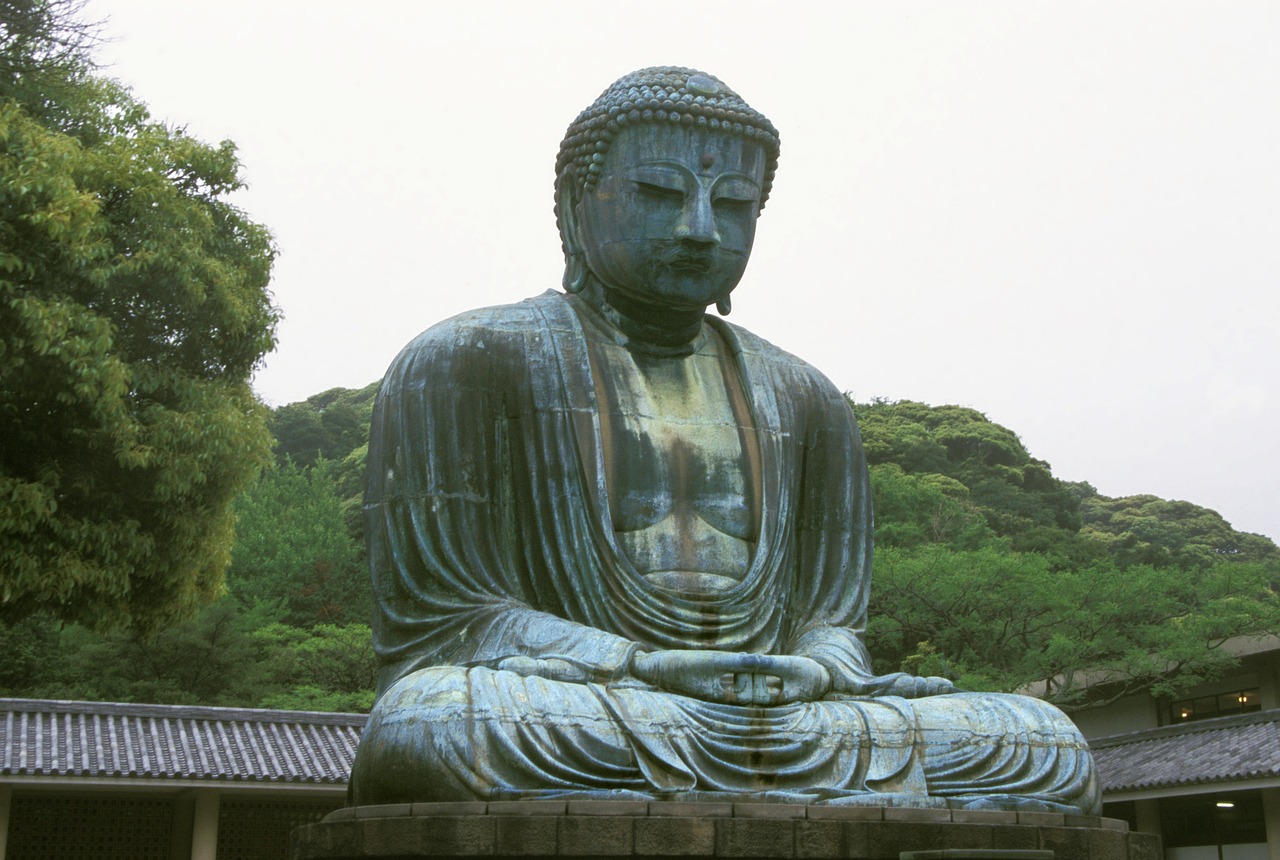
Practical Applications of Ouspensky's Ideas
When diving into the world of P.D. Ouspensky, one might wonder how his profound concepts can be woven into the fabric of everyday life. After all, understanding the fourth dimension and higher consciousness isn't just for philosophers and scientists; it's for anyone willing to explore the depths of their own existence. Ouspensky's ideas encourage us to look beyond the mundane, inviting us to experience life with a renewed sense of awareness. So, how can we practically apply these ideas?
First and foremost, Ouspensky emphasizes the importance of self-awareness. This isn’t just about being aware of your surroundings; it’s about diving deep into your thoughts, emotions, and reactions. By practicing mindfulness, you can begin to observe your internal dialogues and recognize patterns that influence your behavior. This practice can be as simple as taking a few moments each day to reflect on your feelings and thoughts, perhaps through journaling or meditation. Such activities can help you break free from the linear constraints of time and experience moments more fully.
Another practical application of Ouspensky's philosophy is the concept of intentional living. This means making conscious choices that align with your higher self. Instead of drifting through life on autopilot, ask yourself: “What do I truly want to experience?” This question can lead to transformative changes in your daily routine. For instance, if you find joy in nature, you might decide to spend more time outdoors, or if you value learning, you could commit to reading a new book each month. By aligning your actions with your values, you create a life that resonates with your deeper consciousness.
Moreover, Ouspensky's views on time can profoundly influence how we perceive our past and future. Instead of viewing time as a straight line, consider it as a fluid experience. This perspective encourages you to embrace the present moment, acknowledging that every experience contributes to your overall journey. For example, when facing challenges, instead of seeing them as setbacks, view them as opportunities for growth. This shift in perception allows you to navigate life’s ups and downs with a sense of purpose.
To further illustrate the practical applications of Ouspensky's ideas, let’s look at a few key principles:
| Principle | Application |
|---|---|
| Self-Awareness | Practice mindfulness and reflection through journaling or meditation. |
| Intentional Living | Make conscious choices that align with your core values and desires. |
| Fluid Time Perception | Embrace the present and view challenges as opportunities for growth. |
Incorporating these principles into your life not only fosters personal growth but also enhances your connection to the universe. Ouspensky believed that as we expand our consciousness, we begin to perceive realities beyond our immediate experience. This journey of self-development is not just a solitary endeavor; it can also be shared with others. Engaging in discussions about these concepts with friends or joining a community of like-minded individuals can provide support and deepen your understanding.
Ultimately, the practical applications of Ouspensky's ideas challenge us to step outside our comfort zones. They invite us to question our perceptions and strive for a deeper understanding of ourselves and the world around us. By embracing these concepts, we can cultivate a richer, more meaningful existence, one that resonates with the mysteries of the fourth dimension.
- What is the fourth dimension according to Ouspensky? Ouspensky describes the fourth dimension as a realm that transcends our three-dimensional understanding of space and time, offering a more complex view of existence.
- How can I practice self-awareness in daily life? You can practice self-awareness through mindfulness techniques such as meditation, journaling, or simply taking time to reflect on your thoughts and emotions.
- What are some ways to embrace intentional living? Intentional living involves making conscious choices that align with your values—whether that means pursuing hobbies you love, spending time with people who uplift you, or setting goals that resonate with your true self.
- How does Ouspensky's philosophy relate to personal growth? Ouspensky's philosophy encourages individuals to expand their consciousness, which can lead to profound personal growth and a deeper understanding of existence.
Frequently Asked Questions
- What is the fourth dimension according to P.D. Ouspensky?
The fourth dimension, as interpreted by Ouspensky, goes beyond our usual understanding of time and space. It suggests a reality that is more complex than the three-dimensional world we are accustomed to, where time is not just linear but can be experienced in a more fluid manner.
- How does Ouspensky's philosophy influence modern thought?
Ouspensky's ideas have sparked significant discussions in contemporary philosophy and science. His thoughts challenge us to reconsider existence and consciousness, pushing the boundaries of how we perceive reality and the limitations of our human perception.
- What role does time play in Ouspensky's philosophy?
Time is a central theme in Ouspensky's work. He argues that while we perceive time linearly, the fourth dimension offers a richer understanding of temporal existence, suggesting that time can be interconnected and experienced differently.
- What are the differences between linear and non-linear time?
Linear time is the conventional way we view time as a straight line from past to future. In contrast, non-linear time, as proposed by Ouspensky, allows for a more complex experience of time, where moments can be interconnected and perceived in a more holistic way.
- How does Ouspensky's philosophy affect our human experience?
Ouspensky's insights into time and higher dimensions influence how we perceive our lives, memories, and events. By understanding these concepts, we can foster a deeper connection to our experiences and the universe.
- What is the connection between Ouspensky and Gurdjieff's teachings?
Ouspensky's philosophy is closely linked to George Gurdjieff's teachings, which emphasize self-awareness and the pursuit of higher consciousness. Together, they encourage individuals to explore deeper dimensions of existence.
- How can I apply Ouspensky's ideas in my daily life?
Applying Ouspensky's concepts involves seeking a deeper understanding of yourself and your experiences. By fostering self-awareness and striving for personal growth, you can cultivate a more profound connection to the universe and enhance your consciousness.


